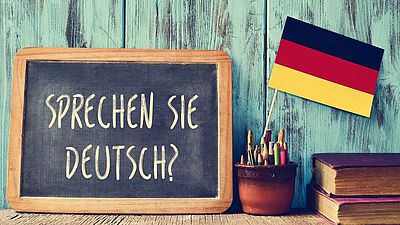Integration courses cover everyday topics such as work and professions, shopping, television or childhood education. Participants also learn how to deal with administrative offices, how to write emails or letters and how to carry oneself properly in job interviews. You will learn about culture and politics, living together in Germany as well as the values German society is based on. The orientation course usually consists of 100 lessons, while the language course entails 600 lessons. Special courses are offered for women, parents or adolescents and adults up to the age of 26, among others. At the end of each course, all participants take a final examination free of charge.
Who can participate in an integration course?
The integration courses are intended for anyone who is new to Germany and whose German language skills are not yet adequate enough for dealing with the demands of everyday life. Whether you are free to attend a course or if the course is mandatory for you depends on your country of origin and your level of fluency in German. Here is where we have compiled the most important regulations for participation:
As an EU citizen, you are welcome to take part in a free integration course if you want to learn German or improve your German skills, provided that a place is available. However, you are not required to do so.
Non-EU citizens are also allowed to take these courses. If your German language skills are not particularly good yet, you may also be required to attend. If you work and do not have time to attend a full or part-time course, you can be exempted from attending the course. Upon the issuance of your residence title, the foreigners authority will let you know whether you are free or required to attend a course.
More information on the conditions of participation and costs can be found here .





